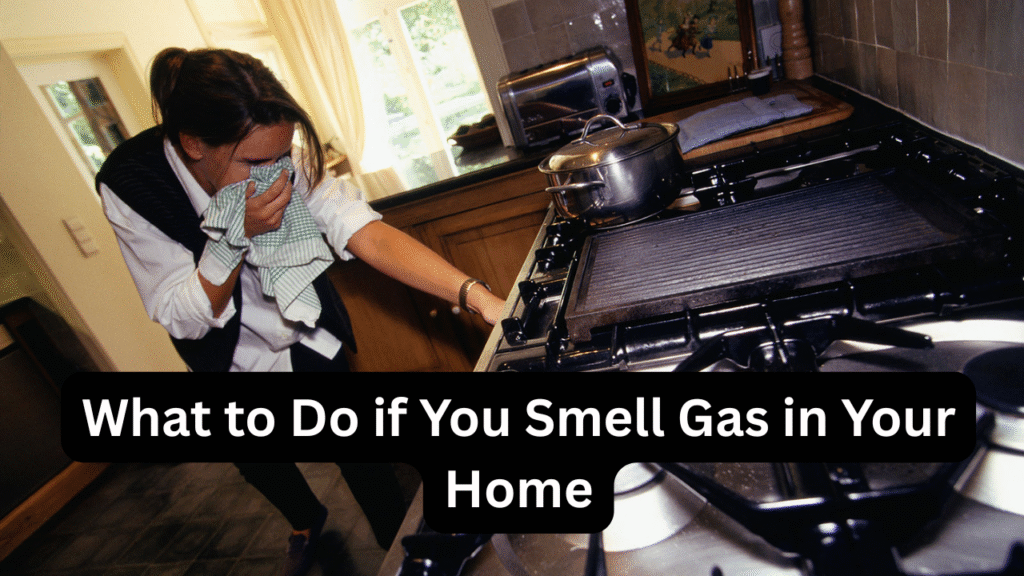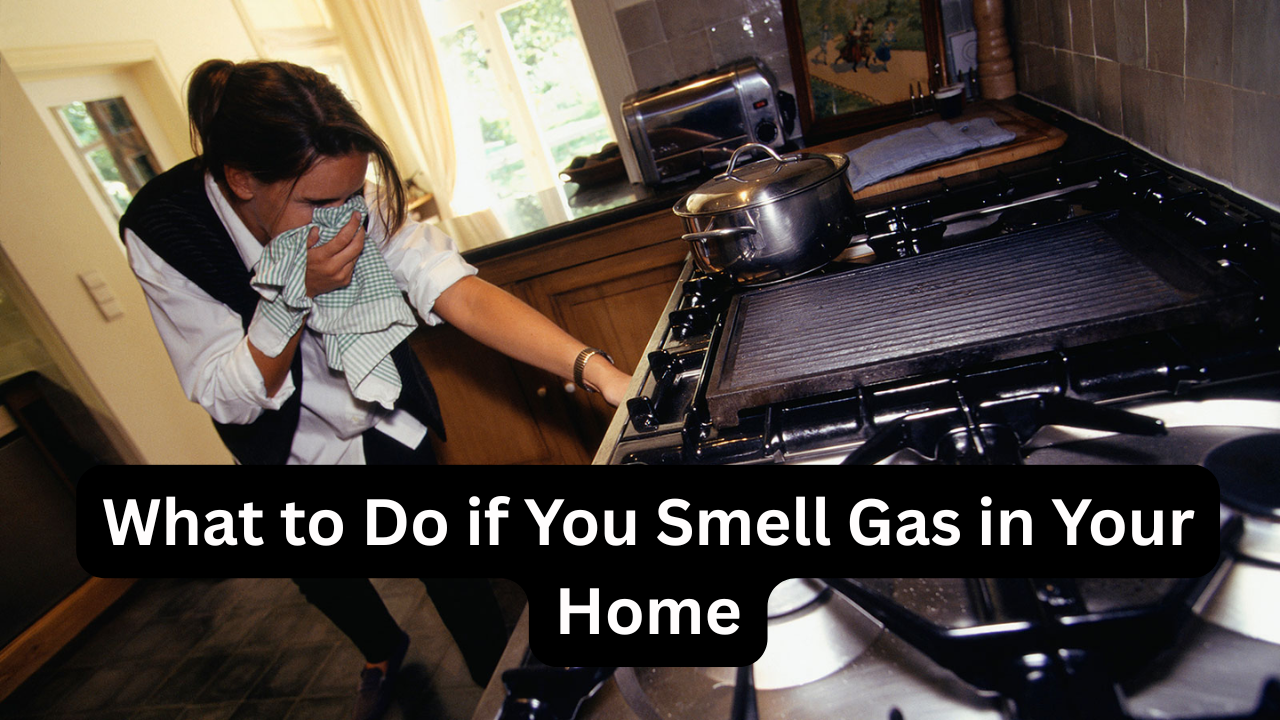
The smell of gas in your home should never be ignored. Natural gas is normally odorless, but utility companies add a chemical called mercaptan to give it a distinct sulfur or rotten egg smell for safety reasons. This smell is your first and most important warning sign of a potential gas leak—a hazard that can lead to fire, explosion, or health risks. Knowing exactly what to do when you detect gas can protect your family and property.
Why Gas Leaks Are Dangerous
Gas leaks pose immediate threats:
- Fire and explosion risk – Even a small spark can ignite leaked gas.
- Health risks – Breathing in gas can cause dizziness, headaches, nausea, and in severe cases, unconsciousness.
- Carbon monoxide exposure – Leaks can cause incomplete combustion, producing dangerous CO levels.
Understanding the risks underscores the importance of fast, correct action.
Steps to Take Immediately if You Smell Gas
1. Do Not Use Electrical Switches or Flames
Avoid turning on or off lights, using appliances, or lighting matches. A spark could ignite the gas.
2. Turn Off the Gas Supply (If Safe)
Locate the gas shut-off valve, usually near the meter or appliance, and turn it off. Only do this if it’s safe and quick to access.
3. Ventilate the Area
Open windows and doors to allow gas to escape. This reduces concentration and lowers the risk of ignition.
4. Evacuate the Premises
Get everyone, including pets, outside immediately. Move to a safe distance away from the building.
5. Call Emergency Services
From outside the home, contact your gas company’s emergency line or local fire department.
6. Wait for Clearance
Do not re-enter your home until professionals declare it safe.
Signs That Indicate a Gas Leak
Aside from the smell of sulfur or rotten eggs, you might notice:
- Hissing or whistling sounds near gas lines.
- Dead or discolored vegetation near outdoor gas lines.
- Bubbles in standing water near gas pipes.
- Unexplained physical symptoms such as dizziness or headaches indoors.
Prevention Tips to Reduce Gas Leak Risks
- Regular appliance servicing – Have gas stoves, heaters, and boilers inspected annually by licensed technicians.
- Install carbon monoxide detectors – They provide an extra layer of safety.
- Check connections – Inspect hoses and fittings regularly for wear or looseness.
- Know your shut-off valve location – Ensure all household members know how to use it.
- Educate your family – Make sure everyone knows the signs of a leak and emergency steps.
Overview Table
| Step | Purpose | Action |
|---|---|---|
| Avoid sparks/flames | Prevents ignition | No lights, appliances, or matches |
| Shut off gas | Stops the leak source | Turn off at meter or appliance valve |
| Ventilate | Reduces gas concentration | Open windows and doors |
| Evacuate | Ensures personal safety | Leave building immediately |
| Call for help | Gets professional assistance | Contact gas supplier or fire department |
| Wait for clearance | Confirms safe re-entry | Follow official advice |
Table: Common Gas Leak Causes
| Cause | Description | Prevention Method |
|---|---|---|
| Faulty appliances | Poor installation or aging equipment | Annual inspection and maintenance |
| Damaged pipelines | Corrosion, construction damage, or natural wear | Regular professional checks |
| Loose connections | Improper fittings on stoves or heaters | Tighten and inspect connections regularly |
| Natural disasters | Earthquakes, floods, or storms damaging lines | Inspect system after major events |
| DIY installation mistakes | Untrained work on gas systems | Always hire licensed professionals |
Common Mistakes to Avoid During a Gas Leak
- Ignoring the smell – Even a faint odor should be taken seriously.
- Using mobile phones indoors – Electronic devices can create sparks.
- Trying to locate the leak yourself – Leave detection and repair to experts.
- Venturing back inside too soon – Always wait for professional clearance.
Conclusion
If you ever smell gas in your home, the key is to act immediately, avoid ignition sources, ventilate, evacuate, and call for help from outside. Gas leaks are emergencies that require swift, careful action—hesitation or the wrong move could have serious consequences. Regular maintenance, proper appliance use, and knowing your emergency plan can significantly reduce the risk of such incidents.
3 One-line FAQs
Q1: Should I try to find the exact source of a gas leak?
A1: No, leave detection and repair to licensed professionals for safety.
Q2: Can a gas leak cause carbon monoxide poisoning?
A2: Yes, leaks can lead to incomplete combustion, producing dangerous CO levels.
Q3: How often should I have my gas appliances inspected?
A3: At least once a year by a qualified technician.

